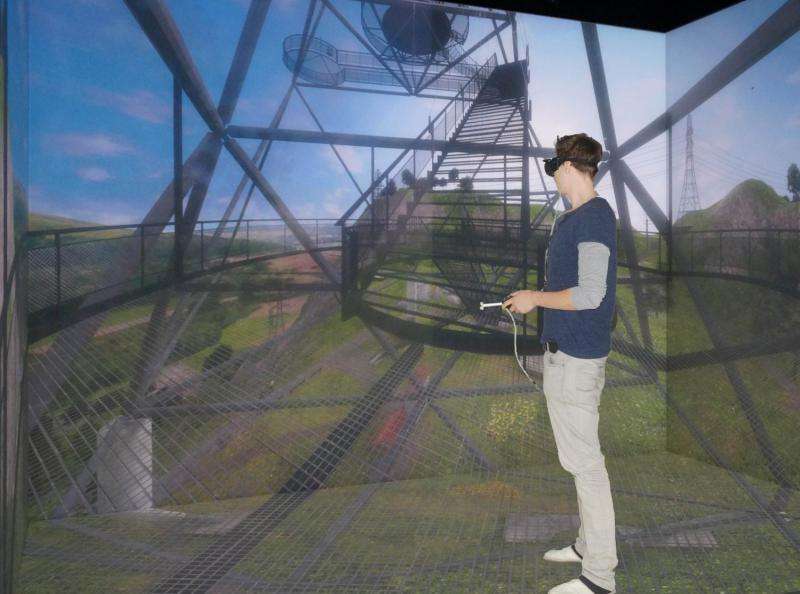Magnetic fields to alleviate anxiety

It is possible to unlearn fears. And this works even better when a specific region of the brain has previously been stimulated magnetically. This has been shown by researchers from the Würzburg University Hospital in a new study.
Nearly one in seven Germans suffer from an anxiety disorder. Some panic upon boarding an aircraft, others find it impossible to enter a room with a spider on the wall, and others prefer the staircase over the elevator – even to get to the 10th floor – because riding in elevators elevates their heart rate.
What sound like funny anecdotes are often debilitating conditions for the sufferers. Sometimes their anxiety can affect them to a point that they are unable to follow a normal daily routine. But help is available: "Cognitive behavioural therapy is an excellent treatment option," says Professor Martin J. Herrmann, a psychologist at the Center of Mental Health of the Würzburg University Hospital. This form of therapy deliberately exposes anxiety patients to the situations they feel threatened by – under the individual psychological supervision of an expert.
Brain stimulation improves response
However, current studies have shown that this type of intervention does not benefit all persons in equal measure. This is why Herrmann and researchers from the Department of Clinical Psychology of the University of Würzburg have been looking for ways to improve the patients' response to cognitive behavioural therapy – by using the so-called transcranial magnetic stimulation. In fact, a positive effect was observed among the study participants treated with this method.
"We knew from previous studies that a specific region in the frontal lobe of the human brain is important for unlearning anxiety," Martin J. Herrmann says. He adds that initial studies have shown that magnetically stimulating this brain region can improve the effectiveness of unlearning anxiety responses in the laboratory. In a recently published study, the team investigated whether this also works for treating a fear of heights.
The study
To this end, 39 participants with a pronounced acrophobia were taken to dizzying heights during two sessions – not in real life, however, but through virtual reality. It does not matter that the environment is not real: "The people feel actual fear in a virtual reality – although they know that they are not really in a dangerous situation," Herrmann explains.
The scientists stimulated the frontal lobe of some of the anxiety patients for about 20 minutes before entering the virtual world; the other group was only administered a pseudo stimulation. The result: "The findings demonstrate that all participants benefit considerably from the therapy in virtual reality and the positive effects of the intervention are still apparent even after three months," Herrmann says. Additionally, stimulating the frontal lobe accelerated the therapy response.
Next, the researchers want to study whether this method is also suitable to treat other forms of anxiety by conducting a further virtual reality therapy study for arachnophobic patients.
More information: Martin J. Herrmann et al. Medial prefrontal cortex stimulation accelerates therapy response of exposure therapy in acrophobia, Brain Stimulation (2016). DOI: 10.1016/j.brs.2016.11.007




















